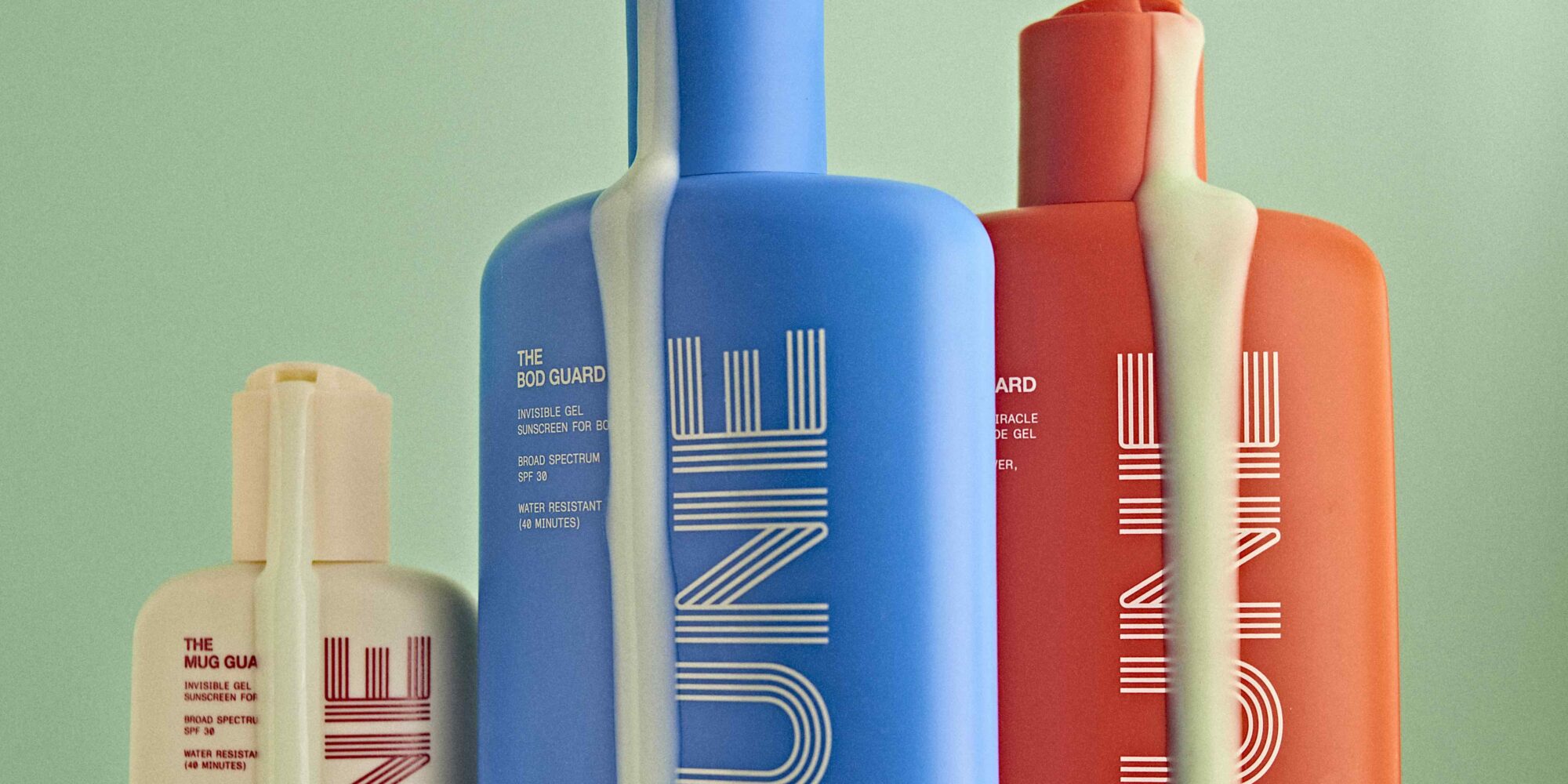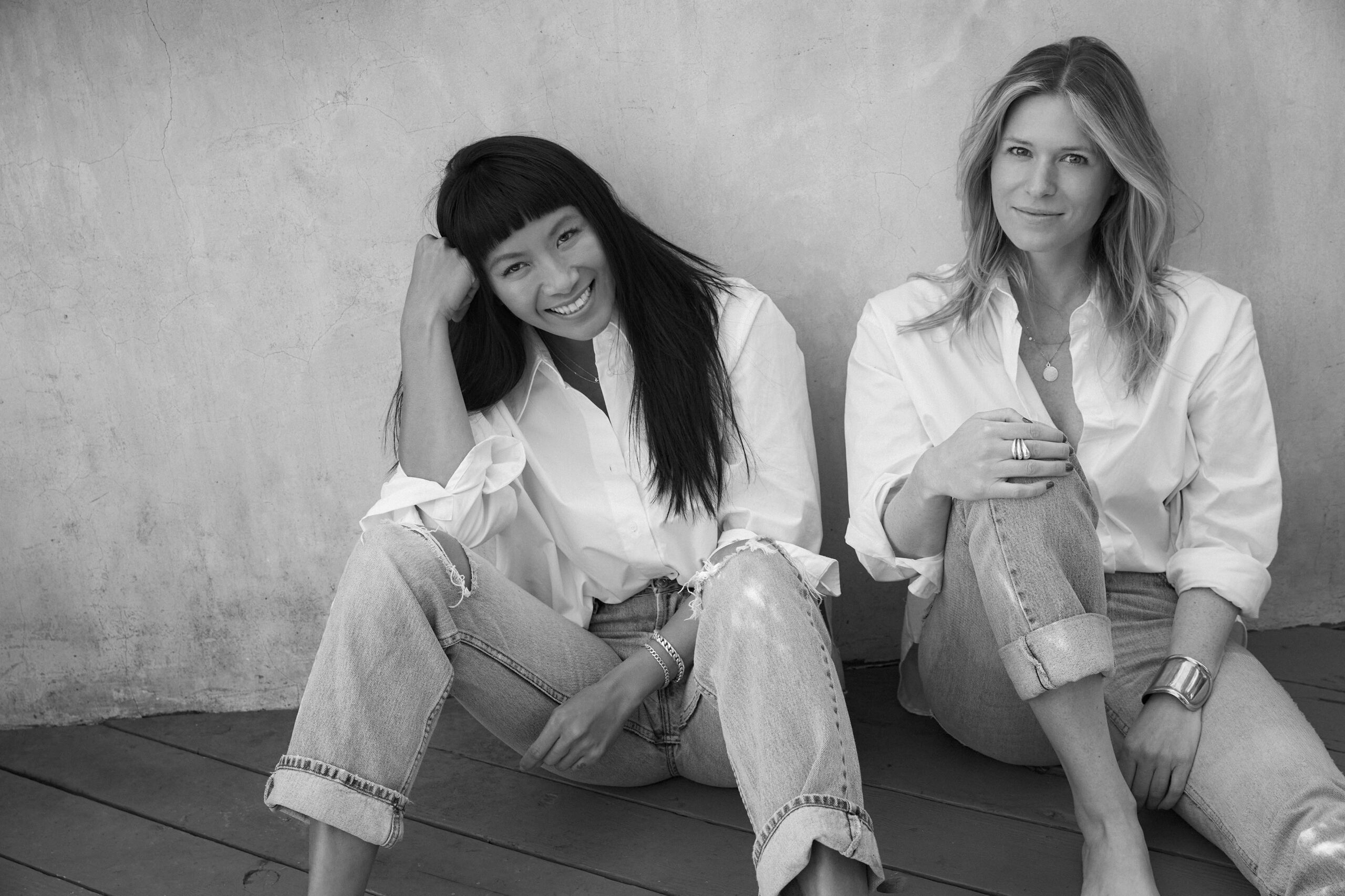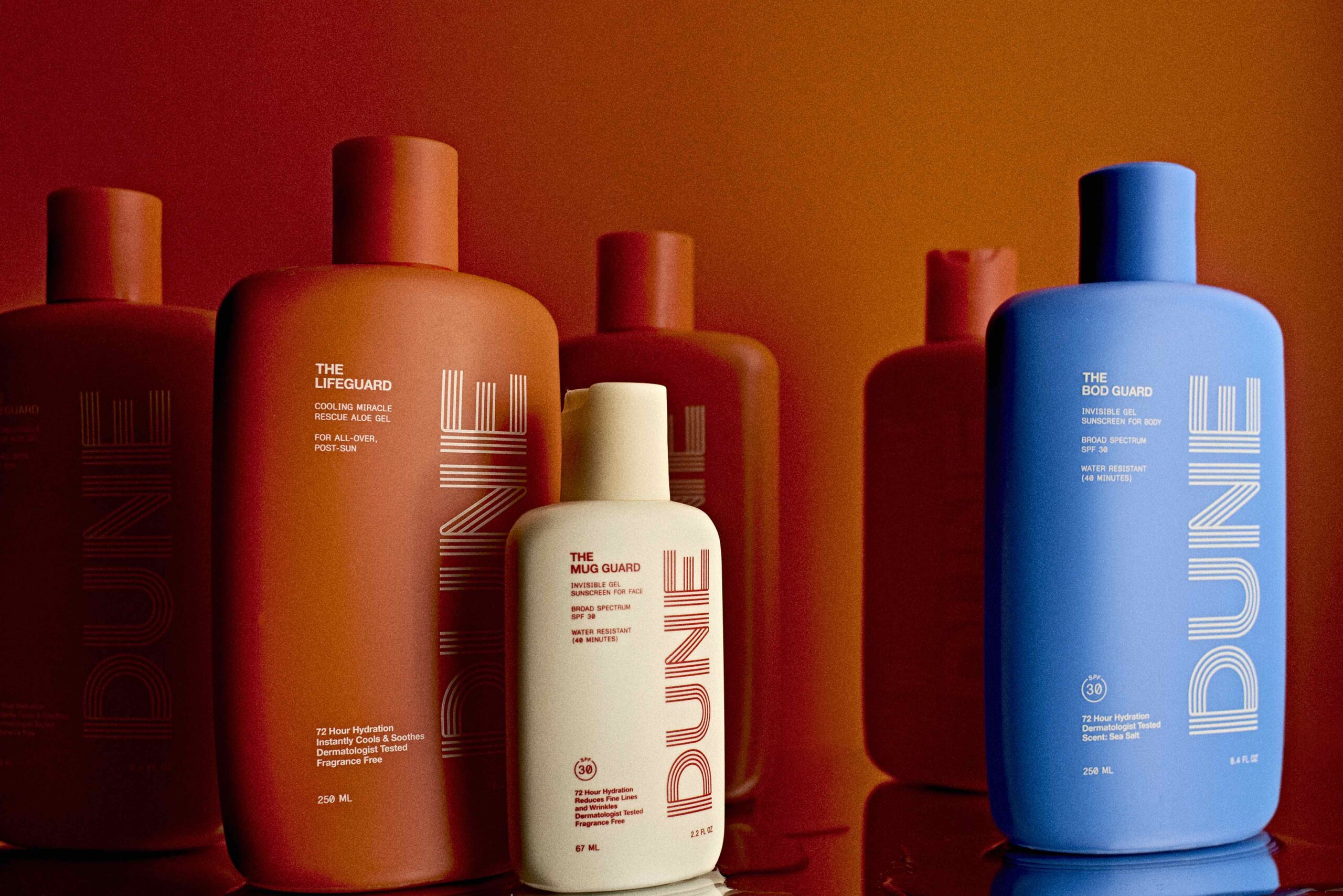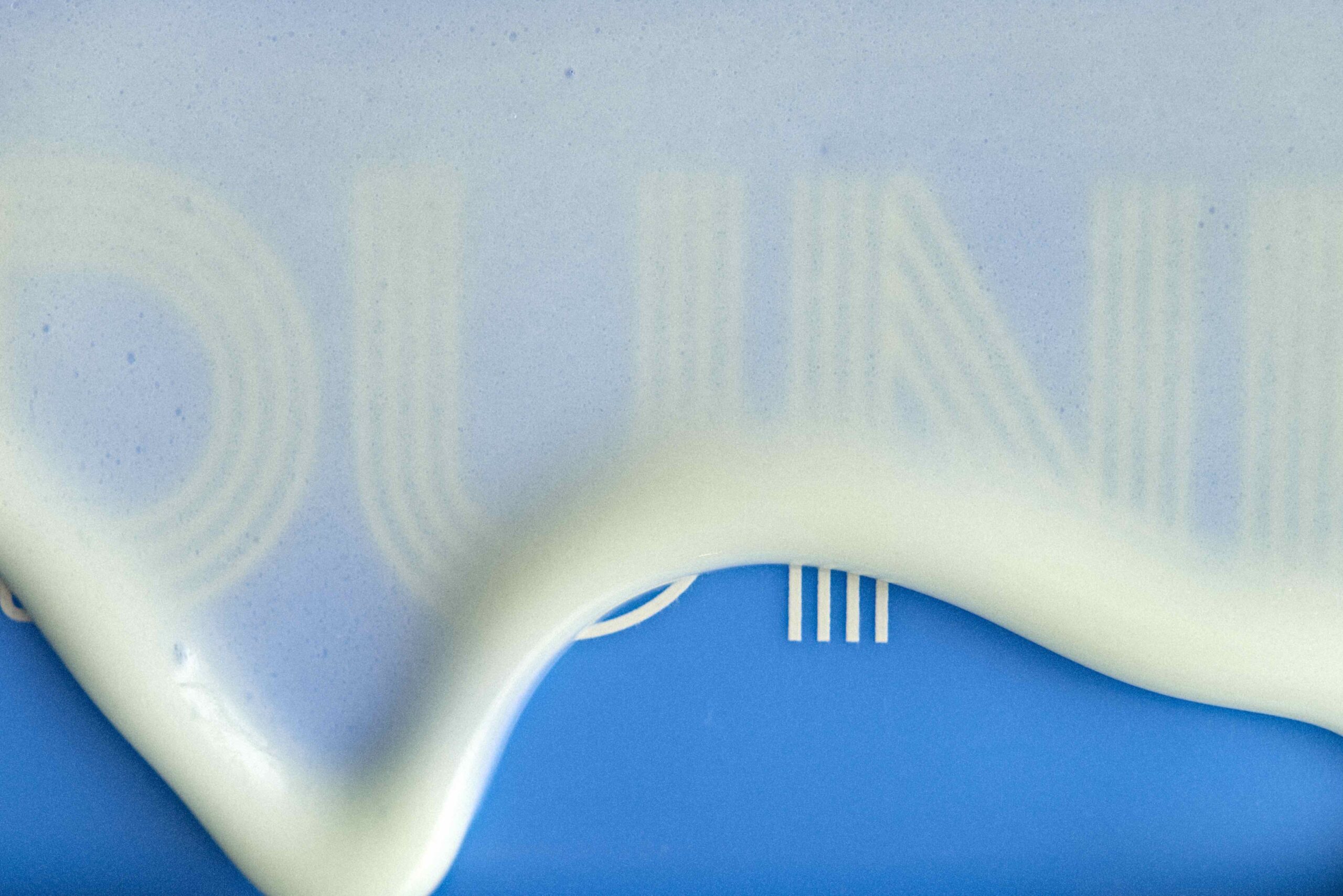
Everyone, Everywhere, Everyday: How Dune Suncare Is Making Sunscreen Easy And Accessible
There are several intriguing nascent brands shaking up sun care today—and Dune Suncare is one of the most intriguing.
In a segment that’s notorious for icky, opaque formulas, it’s creating cool and clear gel sunscreens that don’t require a padded bank account to purchase. Founded by Emily Doyle, a marketer and event production director, and Mei Kwok, a fellow event production director and DJ, the brand’s current assortment spans five sunscreens priced from $22.95 to $29.95. At Ulta Beauty, where Dune launched earlier this year, industry sources cited by trade publication Women’s Wear Daily estimate it will generate $3 million in first-year retail sales.
All the brands entering sun care are betting the routinization of sunscreen application will lead to sales increases they can capitalize on. Sun care projections justify that bet. According to market research firm Research and Markets, global sales of sun care products are expected to advance at an annual compound growth rate of 8.7% through 2030, when they’re forecast to hit $23.2 billion, up from $11.9 billion in 2022.
Dune is seeing the routinization at work as it expands its retail reach from large chains to small boutiques. Doyle says, “Retailers have removed seasonality. They are putting sunscreen on shelf all year round, and that’s hugely important for us as we talk about wearing sunscreen every day, everywhere.” Kwok adds, “We get so many eyeballs from these small, but mighty boutiques. We get DMs and emails from people who saw the product there and love it, and then they might want to buy it for a big hotel chain.”
Beauty Independent chatted with Doyle and Kwok on Thursday about Dune’s distribution network, the brand’s around $3 million seed round that’s wrapping up soon, the “oh shit” moment that led them to learn important lessons, what entrepreneurs should be cautious about when it comes to investors, and where they believe their business will be in five years.
How did your business start?
Doyle: Mei and I started the business in March 2020, week two of COVID. I think I was building an herb garden and practicing yoga at the demise of my career.
Kwok: I went to Puerto Rico for a weekend surf trip and ended up quarantining there for three months. By week two, I was pulling out my hair. Both of our careers were based on socializing and events. I called Emily and said, “I think this is our time to build our dream company.”
I had approached her a year prior about another company I wanted to do. It was in the travel space and would have tanked during COVID. I wanted to create a membership platform for consumers to opt into curated retreats based on surfing, yoga and high-intensity workouts. The business model wasn’t that great.
How did you two meet?
Doyle: She’s so modest, but Mei is a renowned DJ. I was living in New York prior to moving to Venice Beach, and Mei and I were orbiting around each other. I was working in fashion overseeing the PR and marketing department for a big designer, and Mei was on all of our lists. The last party I went to in New York two days prior to moving across the country was a CFDA nomination party, and Mei was the main DJ for it.
My first project in LA was this 32-acre district in downtown LA called Row, running operations and events like Sophia Amoruso’s Girlboss Rally. An email from Mei popped up in my inbox because she was the production director for the Girlboss Rally, and she was asking to conduct a walkthrough of the property I was overseeing.
I was like, “Are you Mei Kwok, the DJ? I’m also a production director.” She came to LA three days later and confided in me that she was thinking of moving to LA. Three months later, she was moving down the street from me in Venice Beach. We built a strong friend relationship first and hit the ground running later on the business side.
What happened with the business side?
Doyle: Two and a half years later, we brought to market the first gel sunscreen line packed with clinically proven skincare benefits. We launched June 8 last year in DTC. A main pillar of the business is accessibility, and we do that in two ways. One is accessibility in wholesale distribution, and the other is price point. All of our products are priced below $30. Convenience is key in the category. We knew we wanted to be everywhere and be as inclusive as possible since sunscreen is an essential item for everyone to wear all year round no matter how dark your skin.
Today, we have almost a 50/50 split on between male and female customers on the back end of our DTC. Our age range is between 16 and 65. We are really striving to be a household name as the best in the sunscreen space. We are sitting in 700 doors. We just celebrated our 1-year anniversary and have quickly moved into beauty retailers, high-end specialty boutiques, grocers and hotels.
We are in your favorite coastal high-end boutique hotel and also your big conglomerate hotels such as the Four Seasons, St. Regis and Ritz Carlton. We moved into Amazon in advance of Black Friday/Cyber Monday last November, and we launched omnichannel in January with Urban Outfitters and then went into Bluemercury. We were selected as one of three brands in their Cache assortment.
In April, we launched with Ulta in 500 doors as well as online. We were proud to make their Sparked program. In the last month, we have launched on anthropologie.com, freepeople.com and FP Movement, and we are launching with Goop today. We have had unicorn success when it comes to distribution.

What was it like to develop the brand?
Doyle: We had zero jobs for two and a half years. We took government checks during COVID. I sold stock to pay for our first production run. It was high risk, and there was a ton of fear, but every day we put one foot in front of each other and looked at the task at hand instead of the big picture. If Mei and I knew it was going to take two and a half years to bring our brand to market, we probably wouldn’t have done it.
The lesson for entrepreneurs is to chip away every day at the tasks at hand as opposed to seeing it as a daunting big picture to tackle. That’s why we got to the other side in sun care, which is such a complicated category because of the testing and money required. We own our products and went through 100 iterations over the lifecycle of development to get to the final formulations. Our chemists are so proud of what they created they take it to their families to use.
When you conceived of the brand, what hole in the market did you think it would fill?
Kwok: The pain point that I wanted to solve was white cast issues. Traditionally, all the sunscreens I had been using in the mass market, even though they were marketed as clear, would still leave a white cast. I wanted more of a clear gel formula, and we wanted to bring in high-quality innovative products with skincare benefits.
Doyle: A lot of brands will have skincare benefits through inactive ingredients that they infuse in the formulations for elasticity and toning, which they will put on the front of the pack. We have clinical claims. All of our products double as your best moisturizer. We have 72-hour hydration. Our No. 1 product, The Mug Guard, has gone through a 28-day, 35-subject clinical trial to be able to print that on the front of the pack. Our products don’t just protect your skin, they perfect your skin as well.
We have been playing with rubbery textures, and that’s a big part of our strategy. It applies to nostalgia and skincare. Kids, for example, are obsessed with tactile gels. Even with our bottles, everything feels matte, soft and rubbery. Gel formulas in skincare are typically extremely hydrating, and hydration is a big story for us. Specialty brands with gel formulas like Clinique are expensive, so we saw a really big opportunity in terms of how we were positioning in the market in terms of price point and distribution.
A lot of the mass brands that are tried-and-true and we have known since we were kids like the Neutrogenas, Hawaiian Tropics and Coppertones of the world really are lacking in terms of innovation, formulation and having ingredients that people are a little bit skeptical about. Where they have succeeded is in distribution and price point. We have pulled the best of from both specialty and mass to build Dune.
What did it cost to get Dune off the ground?
Doyle: I think Mei spent upwards of $10,000 out of pocket. I spent about $30,000. I think I sold $20,000 worth of stock. We opened a friends and family round the September before we launched, closed in a month and a half, and came in oversubscribed. The round was set at $500,000, and we closed at $600,000. We opened a seed round last year for $3 million that we are still in the process of and close to closing.
What’s your pitch to investors?
Doyle: There are a few things that are attractive. One is our quick success with retail partnerships. Plus, all the in-kind marketing with those partners puts us in a class of our own in the sun care space. Two is our relationships aligning us with some of the biggest brands today. We partnered with H&M during Coachella with Mei DJ’ing. We are doing events with The Surf Lodge. We have saved over $4 million in marketing spend off of relationships, and those relationships have catapulted us in terms of our position in the market.
We have created a high-quality product at a very affordable price point. We own our product IP, and that’s really attractive when it comes to a future acquisition, including our signature fragrance, which is sea salt. We wanted to lean into not just innovation in formulation, but innovation in fragrance in this category.
Everything else smells like coconut and banana, and we were tired of it. We wanted a unisex fragrance. We joke that it smells like a freakin’ ocean breeze. We use humor to appeal to the widest possible audience, particularly men. We capture the hearts of 85-year-old male golfers to kids who believe our mint green gel formulation glows in the dark.
When will Dune be profitable?
Doyle: We are planning to be profitable next year. We are really super conservative in terms of our numbers. It’s all based on tangible POs and expected sell-through. We are goody two shoes in investor conversations because we always want to underpromise and overperform. This year, we are seeing 5X above last year’s revenue, and we’re tracking at double-plus revenue [growth] each year.

What opportunities do you see for Dune on the distribution and assortment fronts?
We are having conversations with mass retailers to establish those relationships. We have been fortunate to have been approached. We were approached by Ulta and Urban Outfitters. They slid into our DMs at month two. We are planning to expand into further doors with our current retailers and venture into newness as early as next spring.
In terms of innovation, we just launched our first SKU in sport and surf. We will expand into that further. We just launched one of the sheerest minerals on the market called The Mineral Melt. We plan to expand on skin tone inclusivity in the mineral space, and two years from now we have an exciting launch into baby.
What’s been a very impactful strategy for you?
Hotels are a huge opportunity for us for several reasons. We get POs that drive revenue into the business. We are positioned in key places in shops and in rooms in the mini bars. It’s an easy grab-and-go purchase. A lot of people forget to pack sunscreens or they don’t pack sunscreens because they don’t want to check a bag. The fact that our products are available at a really accessible price point makes them a no-brainer. People who test our product really do fall in love with it and that creates customer loyalty.
We launched 1-gallon pumps of The Bod Guard, which has won five awards as best sunscreen of the year, that we position at different hotels’ beach huts, cabanas and ski lodges. It’s complementary for the guest. It dispenses as a mint green gel, so they are immediately captivated and then the product feels awesome. Kids love applying it and guys like it for being a hassle-free product that doesn’t leave a white cast on their beard or stubble. Having weekly turnover with a very high-end guest base has been really impactful for us as well.
What’s been your biggest surprise so far at Dune?
Doyle: How hard it is. Sunscreen is one of the hardest categories because of the time and money it takes to bring an OTC product to market when you’re starting from zero. Most of our competitors have white lotion SPFs or, if they’re launching a product, they didn’t start from zero, they’re buying a stock product. We really started from zero. It was much more complicated, time-consuming and costly to go down this path. You can feasibly start a skincare brand from zero and bring it to market three months later. That’s totally different in sun care. Being on the other side of it, we have fairly nominal competition.
The other thing is fundraising. I hate to pull the female card, but the stats don’t lie. It’s unbelievable how true it feels that less than 3% of female-founded businesses receive institutional capital. It’s challenging to prove your abilities even if they are proven in the market.
We have kept it lean being a two-woman brand. Mei and I are the ultimate entrepreneurs. You have to pivot quickly to position yourself for success in business. Mei and I have had a lot of “oh shit” moments where we had to act quickly. I’m moving today to New York, and I have four investor calls. It’s a juggle that you just make work.
What’s an example of an “oh shit” moment?
Kwok: Six months before our launch, our original contract manufacturer gave us an update that our formulations wouldn’t be in time for the summer season. They said we could launch in September, which was absolutely not going to be an option for us. We had investors and retail relationships on the line. We had to vet new contract manufacturers last minute. We did it, but it was very stressful.
Doyle: The packaging supplier and contract manufacturer’s quotes came in at the 11th hour and were also twice the cost that we had agreed upon. It was Thanksgiving Day, and our parents were roasting turkey. I was literally having a meltdown. We had to immediately find a new packaging supplier and contract manufacturer that would allow us to bring to market an accessible product, which was a huge pillar for us.
What were the takeaways from that experience?
Doyle: You have to prioritize vetting and meeting as many vendors as possible that you want to align with. We keep very detailed briefing docs on all of the vendors we speak to. It’s about having those conversations, being on the pulse of who could be great partners and keeping your rolodex for when you may be initiating a new partnership. It’s also about renegotiating terms after you’ve been in partnership for a year. You can start relooking at raw material costs and installment plans to negotiate more attractive terms to buy you more runway and cost savings.

What else have you learned on your entrepreneurial journey so far?
Doyle: We’ve become a lot more knowledgeable about intention. I think Mei and I are really fair. We see the best in people, but I don’t think people always have the best intentions. A lot of entrepreneurs will say their investors are their friends—and we think our investors are our friends—but there are a lot of investors who are looking to take your data because they have competitors in their portfolio. You have to be really careful. It’s kind of a hard thing to do, but be a little more shielded in who you are talking to and information you are giving.
What trends are shaping the sun care market?
Doyle: People are obsessed with what they are putting on their skin. They want to know exactly what ingredients are and what they do for you. They are really curious about what SPF actives do for them on a health level, and they are asking a lot of questions. That’s why UGC and affiliate marketing is so effective. It helps tell a story from a human perspective that allows an audience to make good decisions in a saturated sun care market.
Also, two-for-one products. People want to know how your products are different and how you are going to give them the best bang for their buck.
Where do you see Dune five years from now?
Doyle: We think we are going to be the go-to sun care brand that everyone will want to have in their medicine cabinet. We will be the brand for everyone—and we will also be everywhere. We launched international shipping on our DTC site a couple of months ago, and we ship to almost every global market. We have had some great conversations with international wholesale accounts who wanted to launch in Q1 of this year, which we have respectively put off to when it makes sense for us in terms of focus and margin.
We have so much love and respect for Sun Bum, and we have taken a similar approach in terms of distribution and price point.





Leave a Reply
You must be logged in to post a comment.